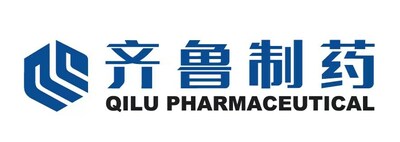Subject: TRI
Phase I Study Results for Qilu Pharmaceutical's Iparomlimab (QL1604) Now Published
JINAN, China, Nov. 6, 2023 /PRNewswire/ -- Recently, the results of the Phase I study for iparomlimab (R&D code: QL1604), developed by Qilu Pharmaceutical Co., Ltd. were published online in the academic journal Frontiers in Immunology (2022 Impact Factor: 7.3). The title of the paper is "A first-in-human, open-label, dose-escalation and dose-expansion phase I study to evaluate the safety, tolerability, pharmacokinetics/pharmacodynamics, and antitumor activity of QL1604, a humanized anti-PD-1 mAb, in patients with advanced or metastatic solid tumors". (https://www.frontiersin.org/articles/10.3389/fimmu.2023.1258573/full) The study, which is the first-in-human (FIH) study for iparomlimab, was conducted by a team led by Professor Yun Fan from Zhejiang Cancer Hospital.
QL1604 is an innovative monoclonal antibody drug developed by Qilu Pharmaceutical. The findings of the study demonstrated that QL1604 possessed favorable safety, tolerability, and pharmacokinetic (PK)/pharmacodynamic (PD) profiles and antitumor activity, providing valuable evidence for further clinical trials of QL1604.
I. Study Background and Objectives
This study was an open-label Phase I clinical trial of QL1604 in patients with advanced or metastatic solid tumors. The primary objective of the study was to evaluate the safety and tolerability of QL1604 and to determine the recommended dosage for future clinical trials.
II. Study Design and Patient Allocation
The study consisted of dose escalation and dose expansion phases. Between May 29, 2019 and July 24, 2020, a total of 35 patients were enrolled and treated with QL1604. As of the data cut-off date (July 14, 2022), four patients were still on treatment.
III. Safety, Tolerability and Efficacy Results
Out of the six patients in the iparomlimab 3 mg/kg once every two weeks (Q2W) group, one patient (16.7%) with thymic carcinoma experienced dose-limiting toxicity (DLT), grade 3 myasthenia gravis and immune-mediated myositis. No DLT occurred at the planned maximum dose level of 10 mg/kg for dose escalation. Thus, maximum tolerated dose (MTD) was not determined and QL1604 was well-tolerated.
Among all the patients, 94.3% (33 out of 35) experienced adverse events (AEs), with 82.9% (29 out of 35) being treatment-related adverse events (TRAEs). The safety profile was consistent with that of previously reported PD-1 monoclonal antibodies. The most common TRAEs (?10%) included fatigue (37.1%), anemia (22.9%), increased blood thyroid-stimulating hormone (TSH) (17.1%), increased aspartate transaminase (AST) (17.1%), increased alanine transaminase (ALT) (14.3%), decreased white blood cell counts (11.4%), skin rashes (14.3%) and pruritus (14.3%). Most TRAEs were of grade 1 to 2. The incidence of grade 3 and higher TRAEs was 17.1% (6 out of 35). No grade 5 TRAEs occurred.
In total, 17 patients (48.6%) experienced immune-related adverse events (irAEs). The most common irAE was increased blood TSH (17.1%). Four patients (11.4%) experienced grade 3 or higher irAEs. Three (8.6%) experienced infusion-related reactions (all grade 1-2).
Safety data indicated that the safety profile of QL1604 was manageable. No new safety signals were observed.
Of all the patients, seven (20.0%) achieved partial response (PR) and five (14.3%) achieved stable disease (SD). The objective response rate (ORR) was 20.0% (7 out of 35), and the disease control rate (DCR) was 34.3% (12 out of 35). The median duration of response (DOR) was 26.64 months (95% CI, 2.79-not estimable).
IV. PK/PD Results
The half-life (T1/2) of QL1604 ranged from 3 to 11 days within the dose range of 0.3 mg/kg to 10 mg/kg. A linear relationship was observed between drug exposure and dosage.
PD results indicated that the mean PD-1 receptor occupancy (RO) exceeded 80% one cycle after administering fixed doses of QL1604 at 3 mg/kg every two weeks (Q2W), 3 mg/kg every three weeks (Q3W), 10 mg/kg Q2W, and 200 mg fixed dose Q3W.
V. Summary
The safety and PK profile of QL1604 monotherapy for advanced or metastatic solid tumors was favorable and clear signal of antitumor activity was showed. The recommended doses for future clinical studies were identified as 3 mg/kg Q3W and a fixed dose of 200 mg Q3W.
Currently, the clinical study of QL1604 in patients with unresectable or metastatic deficient mismatch repair (dMMR) or microsatellite instability-high (MSI-H) advanced solid tumors who have failed standard treatment, has reached the primary endpoint. The Biologics License Application has been accepted by the Center for Drug Evaluation of China's National Medical Products Administration on September 17, 2023.
SOURCE Qilu Pharmaceutical Co., Ltd.
These press releases may also interest you
|
News published on and distributed by:




